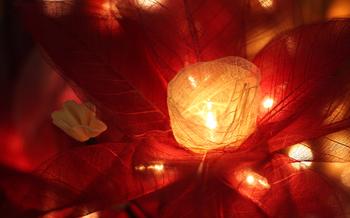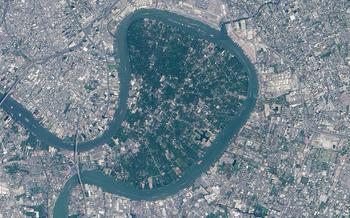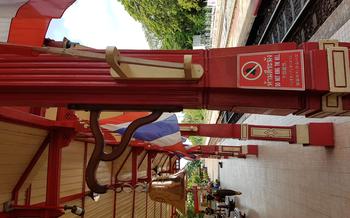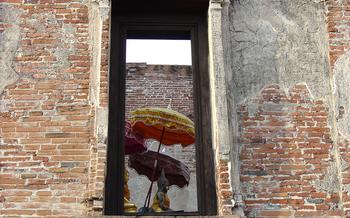
Nong Yai Development Project
- The Nong Yai Development Project: A Unique Insight into Rural Thai Life
- Location and Getting There
- What to Expect at the Nong Yai Development Project
- Organic Farming and Sustainable Agriculture Practices
- Community-Based Tourism and Cultural Exchange
- Exploring the Natural Beauty of Chumphon
- Visiting the Local Village and Market
- Supporting Local Initiatives and Fair Trade
- Homestay Experience and Cultural Immersion
- Cooking Classes and Traditional Thai Cuisine
- Elephant Conservation and Ethical Tourism
- Off-the-Beaten-Path Adventures
- Volunteering Opportunities and Giving Back
- Budget Tips and Practical Information
The Nong Yai Development Project: A Unique Insight into Rural Thai Life
The Nong Yai Development Project is a unique initiative that offers visitors an immersive experience into the vibrant culture and sustainable practices of rural Thailand. Established in 1985, the project aims to empower local communities through organic farming, sustainable agriculture, and community-based tourism. It provides a platform for visitors to learn about Thai traditions, engage with the local people, and contribute to the preservation of the region's natural beauty.
The project's history is deeply rooted in the vision of His Majesty King Bhumibol Adulyadej, who sought to improve the livelihoods of rural communities while promoting sustainable development. The project's goals are multifaceted, focusing on education, community development, and environmental sustainability. It strives to provide vocational training, promote organic farming techniques, and encourage community-based tourism as a means of economic empowerment.
The Nong Yai Development Project holds immense significance for the local community. It has played a crucial role in improving living standards, preserving traditional practices, and promoting sustainable agriculture. The project has empowered local farmers to adopt organic farming methods, reducing their reliance on chemical fertilizers and pesticides. It has also established a successful community-based tourism initiative, generating income for local families and showcasing the region's rich cultural heritage.
Despite its success, the Nong Yai Development Project faces several challenges. One of the primary challenges is the need to strike a balance between economic development and environmental sustainability. The project works to ensure that tourism activities do not negatively impact the delicate ecosystems of the region. Another challenge is the need to adapt to changing economic conditions and market demands. The project continuously innovates to ensure that it remains relevant and sustainable in the long term.
Location and Getting There
The Nong Yai Development Project is situated in the lush and tranquil countryside of Chumphon, a province in southern Thailand renowned for its pristine beaches, dense forests, and rich cultural heritage. The project is nestled in the heart of Nong Yai Village, surrounded by picturesque rice paddies, rubber plantations, and tropical fruit orchards. To reach this hidden gem, visitors can take a scenic 3-hour drive from Hua Hin, the nearest major city, or a comfortable 6-hour bus ride from Bangkok, the capital of Thailand. Guided tours are also available from local tour operators, providing a hassle-free and informative way to explore the project and its surroundings.
What to Expect at the Nong Yai Development Project
Visitors to the Nong Yai Development Project can expect a truly immersive and educational experience. The project offers a variety of activities that allow visitors to learn about and participate in sustainable agriculture practices, community-based tourism, and cultural exchange.
One of the highlights of the project is the opportunity to work alongside local farmers and learn about organic farming techniques. Visitors can get hands-on experience planting, harvesting, and processing crops, and gain a deeper understanding of the challenges and rewards of sustainable agriculture.
In addition to farming activities, visitors can also participate in cooking classes, cultural workshops, and guided tours of the village and surrounding area. These activities provide a unique opportunity to interact with the local community, learn about Thai culture and traditions, and contribute to the local economy.
While visiting the Nong Yai Development Project, it is important to be prepared for the challenges of rural life. Visitors should expect to work hard, live in basic conditions, and adapt to a different way of life. However, the rewards of the experience are immense, and visitors will leave with a newfound appreciation for the simplicity and resilience of rural Thai life.
Organic Farming and Sustainable Agriculture Practices
The Nong Yai Development Project is a shining example of organic farming and sustainable agriculture practices. Farmers here use traditional methods that have been passed down through generations, such as crop rotation, composting, and natural pest control. They also experiment with new techniques to improve yields and reduce their environmental impact. Visitors to the project can learn about these practices and see them in action. They can also participate in workshops and demonstrations to learn how to grow their own organic food.
The importance of these practices cannot be overstated. Organic farming helps to protect the environment by reducing pollution and conserving water. It also produces healthier food that is free of chemicals and pesticides. Sustainable agriculture ensures that farming practices are environmentally friendly and economically viable, so that future generations can continue to benefit from the land.
By learning about and supporting organic farming and sustainable agriculture practices at the Nong Yai Development Project, visitors can help to create a more sustainable and healthy future for Thailand.
Community-Based Tourism and Cultural Exchange
The Nong Yai Development Project is not just about agriculture and sustainability; it is also about cultural exchange and community-based tourism. Visitors to the project have the chance to interact with the local people, learn about their way of life and their rich culture, and contribute to the local economy.
One of the best ways to experience the local culture is to visit the village market. Here, visitors can browse a wide variety of locally made products, including fresh produce, handmade crafts, and traditional Thai clothing. It is also a great place to sample some of the delicious local cuisine and interact with the friendly vendors.
Visitors can also choose to stay in a local homestay, which offers a unique opportunity to experience Thai culture and traditions firsthand. Homestay families typically provide visitors with a room in their home, as well as meals and cultural activities. This is a great way to learn about Thai customs, language, and way of life.
The Nong Yai Development Project promotes responsible and ethical tourism, emphasizing the importance of respecting the local culture and environment. Visitors are encouraged to dress modestly, ask permission before taking photos, and avoid littering or causing any damage to the natural surroundings.
By embracing community-based tourism and cultural exchange, the Nong Yai Development Project not only supports the local economy but also fosters greater understanding and appreciation between visitors and the local community.
Exploring the Natural Beauty of Chumphon
Chumphon is a haven for nature enthusiasts, boasting diverse landscapes ranging from lush rainforests to pristine beaches. The province is home to several national parks and wildlife sanctuaries, offering visitors the chance to immerse themselves in the region's rich biodiversity. One of the most popular activities is hiking, with trails that wind through dense jungles and lead to breathtaking viewpoints. Birdwatching is another popular pastime, as Chumphon is home to a wide variety of bird species, including hornbills, kingfishers, and eagles. For those seeking a more adventurous experience, kayaking is a great way to explore the province's many rivers and mangrove forests.
The best time to visit Chumphon for the most pleasant weather and optimal wildlife viewing is during the dry season, which runs from November to April. During this time, the skies are clear, the humidity is low, and the temperatures are moderate, making it ideal for outdoor activities.
Visiting the Local Village and Market
The local village near the Nong Yai Development Project is a vibrant and welcoming community that offers a glimpse into traditional Thai life. Visitors can wander through the village, observing the daily routines of the local people and interacting with them. The village is home to a small market where visitors can purchase unique products and souvenirs, including handmade crafts, local produce, and traditional Thai snacks.
The market is a hub of activity, with vendors selling everything from fresh fruits and vegetables to colorful fabrics and handmade jewelry. Visitors can haggle with the vendors for the best prices and learn about the local culture and customs. It's important to be respectful and ethical when interacting with the local community, asking permission before taking photos and respecting their privacy.
Supporting Local Initiatives and Fair Trade
When visiting the Nong Yai Development Project, travelers have the opportunity to support local initiatives and fair trade practices, contributing directly to the economic development and sustainability of the community. One of the best ways to do this is by purchasing handmade crafts and products from local artisans. These artisans use traditional techniques and materials to create unique and beautiful items, such as woven baskets, pottery, and jewelry. By buying these products, visitors not only support the artisans' livelihoods but also help preserve traditional Thai crafts and culture.
The local market is a great place to find handmade products and souvenirs. Visitors can browse the stalls, meet the artisans, and learn about their crafts. Bargaining is expected, so don't be afraid to negotiate a fair price. When bargaining, remember to be respectful and friendly, as the vendors are often very welcoming and eager to share their stories. By supporting local businesses and fair trade practices, travelers can help create a positive impact on the community and ensure that the benefits of tourism are shared by everyone.
Homestay Experience and Cultural Immersion
A truly immersive experience awaits travelers who choose to stay in a local homestay in Chumphon. Homestays offer a unique opportunity to live alongside a Thai family, sharing their daily lives, meals, and traditions. This intimate glimpse into local culture provides a deeper understanding of Thai society and way of life.
Homestay hosts are typically warm and welcoming, sharing their stories and customs with guests. Visitors can participate in daily activities such as cooking, gardening, or fishing, gaining hands-on experience of rural Thai life. Evenings are often spent sharing meals and conversations, fostering a sense of community and connection.
Staying in a homestay is not just a cultural experience but also a chance to contribute to the local economy. Homestay fees directly benefit the host family, providing them with a sustainable source of income. By choosing a homestay, visitors can directly support the local community and contribute to its development.
To find a homestay in Chumphon, travelers can contact local tourism organizations or search online for reputable homestay providers. It is advisable to book in advance, especially during peak season. Homestay experiences in Chumphon range from simple accommodations to more luxurious options, catering to different budgets and preferences.
Whether you are a solo traveler, a couple, or a family, a homestay experience in Chumphon promises an authentic and enriching cultural immersion. Embrace the opportunity to live like a local, learn about Thai traditions, and create lasting memories in the heart of rural Thailand.
Cooking Classes and Traditional Thai Cuisine
Thai cuisine is renowned for its vibrant flavors, fragrant spices, and fresh ingredients. While traveling in Chumphon, visitors have the opportunity to immerse themselves in this culinary paradise by taking cooking classes and learning the art of preparing traditional Thai dishes. These classes typically take place in local homes or cooking schools and are led by experienced chefs who share their knowledge and techniques with eager students.
During a cooking class, visitors can expect to learn about the fundamental ingredients of Thai cuisine, such as lemongrass, galangal, and kaffir lime leaves. They will also be introduced to the various cooking methods used in Thai cuisine, such as stir-frying, steaming, and grilling. Under the guidance of their instructor, students will prepare a variety of dishes, such as pad thai, green curry, and mango sticky rice.
In addition to learning new culinary skills, cooking classes also provide a unique opportunity for visitors to connect with locals and gain insights into Thai culture. By sharing a meal together, visitors can learn about Thai customs, traditions, and family life. Whether you're a seasoned cook or a complete beginner, taking a cooking class in Chumphon is a delightful and rewarding experience that will leave you with a lasting appreciation for Thai cuisine.
Elephant Conservation and Ethical Tourism
Elephant conservation is a crucial aspect of responsible tourism in Thailand. Chumphon is home to several reputable organizations dedicated to protecting these gentle giants and providing ethical experiences for visitors. One such organization is the Elephant Nature Park, which offers visitors the chance to observe elephants in their natural habitat, learn about their behavior, and contribute to their conservation efforts. Visitors can participate in activities such as feeding and bathing the elephants, while adhering to strict ethical guidelines that prioritize the well-being of these magnificent creatures.
Off-the-Beaten-Path Adventures
Beyond the popular tourist attractions, Chumphon offers a wealth of hidden gems waiting to be discovered. For those seeking unique and less crowded experiences, venturing off the beaten path is a must. Start by exploring the stunning waterfalls scattered throughout the province, such as the cascading Pala-U Waterfall or the serene Khao Sok Waterfall. These natural wonders offer picturesque views and refreshing swimming spots away from the crowds.
For history buffs, delve into the past at the ancient ruins of Mueang Chumphon, a former city dating back to the 13th century. Explore the remnants of old temples, city walls, and canals, and immerse yourself in the rich history of the region.
For a truly unique experience, visit the coastal village of Pak Nam Chumphon, where traditional fishing communities still thrive. Witness the daily life of local fishermen, observe traditional fishing techniques, and savor the freshest seafood dishes at the local market.
When exploring off-the-beaten-path destinations, it's essential to respect the environment and local customs. Avoid littering, noise pollution, and disrespectful behavior. Embrace the opportunity to connect with the locals, learn about their way of life, and support their community.
Volunteering Opportunities and Giving Back
The Nong Yai Development Project welcomes volunteers from all over the world who are passionate about sustainable agriculture, community development, and cultural exchange. Visitors can contribute their skills and knowledge to various projects, such as teaching English to local children, working on organic farms, or participating in conservation efforts.
One popular volunteer opportunity is working with the local farmers to learn about organic farming techniques and help them improve their agricultural practices. Volunteers can also get involved in community development projects, such as building schools, libraries, or playgrounds.
The project also offers opportunities for volunteers to teach English to local children. This is a rewarding experience that allows volunteers to make a real difference in the lives of the children they teach. Volunteers can also participate in cultural exchange activities, such as cooking classes, traditional dance lessons, or learning about Thai customs and traditions.
If you are interested in volunteering at the Nong Yai Development Project, please contact the project coordinator for more information. They will be able to provide you with details on the available projects, the length of stay, and the application process.
Volunteering at the Nong Yai Development Project is a unique opportunity to give back to the local community, learn about sustainable living, and experience the rich culture of Thailand.
Budget Tips and Practical Information
Visiting Thailand on a budget is possible, especially when venturing off the beaten path to destinations like Chumphon. Here are some budget tips and practical information to help you make the most of your trip:
Cost of Living: Chumphon is generally more affordable than popular tourist destinations in Thailand. Expect to spend around 500-1000 THB ($15-30) per day for basic expenses, including accommodation, food, and transportation.
Accommodation: There are several budget-friendly accommodation options in Chumphon, including guesthouses, hostels, and homestays. Dorm beds in hostels start at around 150 THB ($5) per night, while a private room in a guesthouse can cost around 300-500 THB ($10-15) per night.
Food: Local markets and street food stalls offer delicious and affordable meals. A typical meal at a local restaurant costs around 50-100 THB ($5-3), while a meal at a mid-range restaurant can cost around 200-300 THB ($6-9).
Transportation: Public transportation is reliable and inexpensive in Chumphon. Local buses and songthaews (shared taxis) charge around 20-50 THB ($0.6-5) per ride. Renting a motorbike is another popular option, with prices starting at around 200 THB ($6) per day.
Things to Bring: Pack light, comfortable clothing suitable for hot and humid weather. Insect repellent, sunscreen, and a hat are essential. Bring a reusable water bottle to avoid buying plastic bottles.
Local Customs: Respect local customs and traditions. Dress modestly, especially when visiting temples or religious sites. Remove your shoes before entering someone's home or temple. Learn a few basic Thai phrases to communicate with locals.




